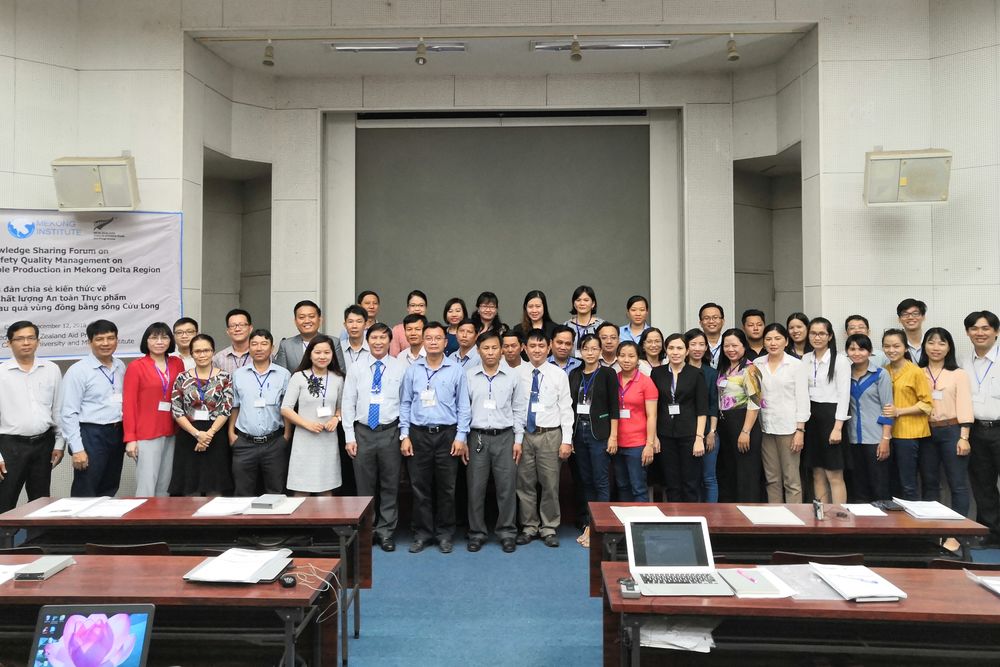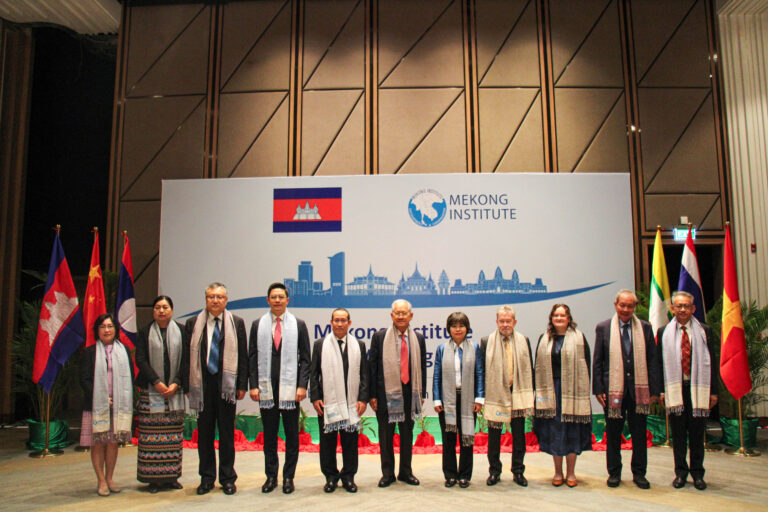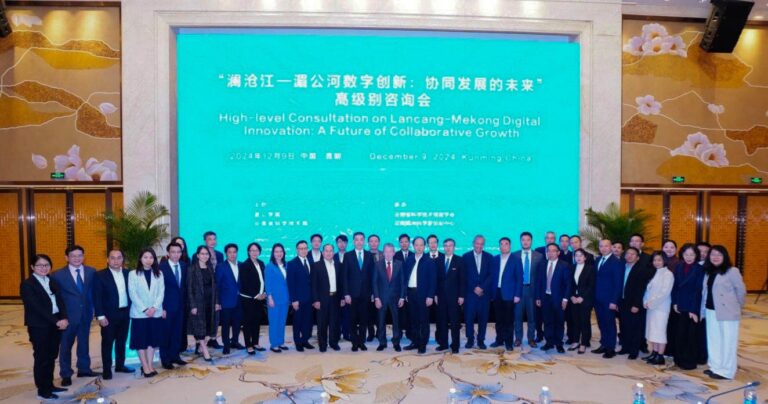Mekong Institute, in cooperation with the Biotechnology Research and Development Institute (BIRDI) and College of Agriculture (CA) of Can Tho University (CTU), organized a knowledge sharing forum last December 12 in Can Tho City, Vietnam.
Gathering around 70 participants, the forum served as a platform to share and discuss current food safety-related issues on fruit and vegetable production in the country’s Mekong Delta Region. Among those who attended were local government authorities from key food safety agencies; research institutions and universities; as well as agricultural cooperatives and companies.
Delivering the welcome remarks, Assoc. Prof. Dr. Nguyen Van Thanh, BIRDI’s Director, emphasized the significant contribution of the fruit and vegetable sectors to regional and national economies. Dr. Thanh also highlighted pressing concerns regarding high pesticide residue, indiscriminate use of pesticides with prohibited ingredients, high volume of postharvest losses, increasing demand and stricter market requirements. He stated that “sharing knowledge among different food safety stakeholders is necessary to improve safety and quality of products serving both domestic and export markets.”
The forum also featured short presentations by representatives from the public and private sectors. Assoc. Prof. Dr. Ly Nguyen Binh, Vice Dean of CTU’s CA, discussed the current food safety situation on fruit and vegetable production in the Mekong Delta; while Mr. Do Minh Hien of Fruit Republic Co., Ltd., talked about the challenges faced by the private sector especially in managing pesticide residue. New innovations and strategies in postharvest handling of fresh fruits and vegetables were presented by Dr. Nguyen Van Phong, Head of Postharvest Technology Department of the Southern Horticultural Research Institute. Two MI alumni, Mr. Chu Hong Chau and Mr. Giang Minh Tho, also shared their experiences on managing pesticide residue in fruits and vegetables to meet the requirements of importing countries.
Discussions after the presentations underscored the importance of transforming food safety attitude and behavior among producers and consumers. Producers should ensure compliance to updated standards and requirements of domestic and foreign markets. Conversely, consumers should be more aware, involved, and proactive in promoting a culture of safe food. Stronger cooperation among the government, academic, and private sector was also recommended. In line with this, a proposal was raised to establish CTU as a food safety learning center in southern Vietnam. This pilot initiative aims to link food safety experts and practitioners in the region through collaborative activities toward demonstrable changes in food safety.







